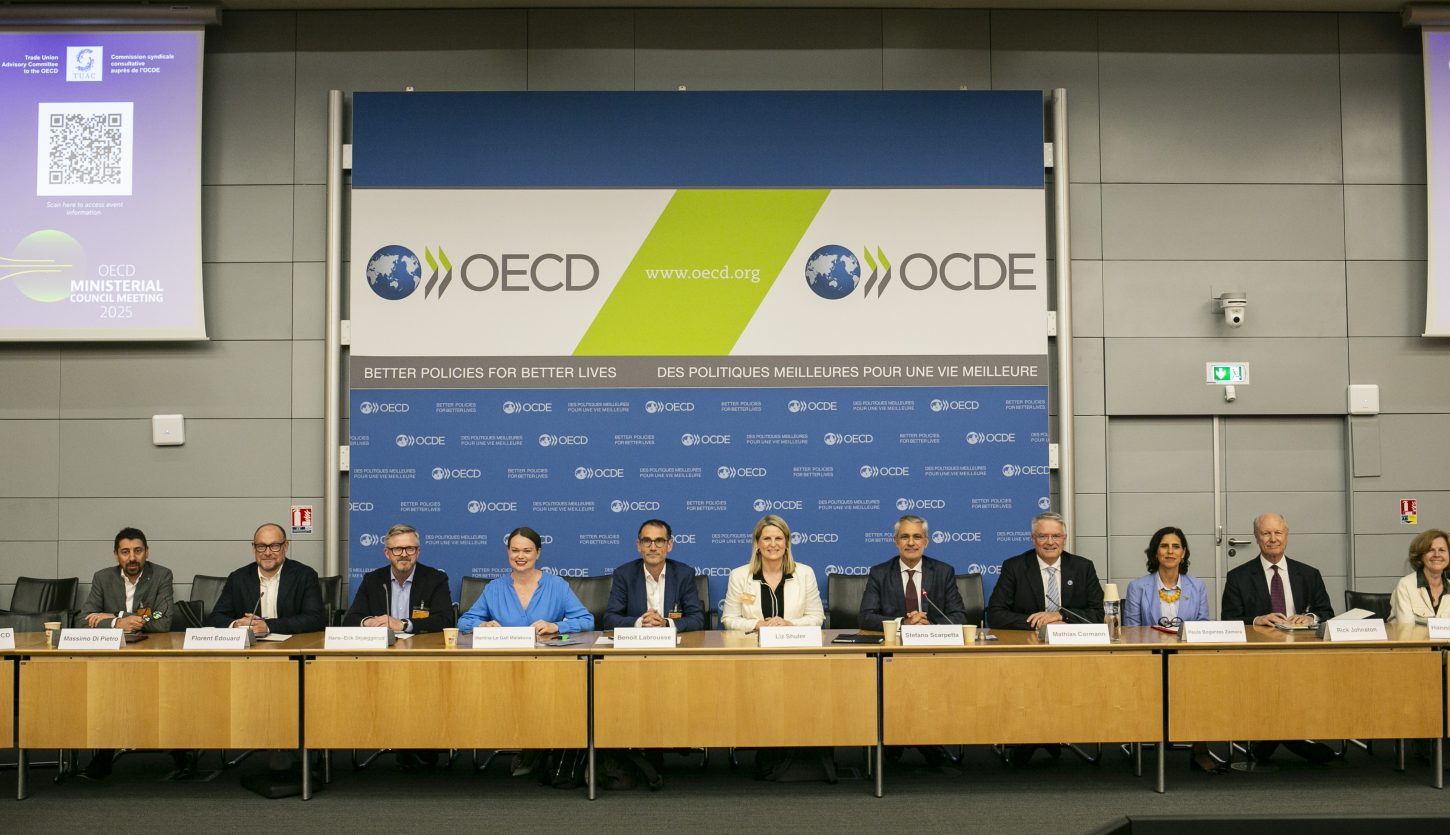In the margins of the 2025 OECD Ministerial Council Meeting, TUAC co-hosted the roundtable “AI at Work: Impacts for Productivity and Job Quality” following its 156th Plenary this week. The event, jointly organised with Business at OECD (BIAC), brought together trade union representatives, governments, business leaders and OECD experts to address AI’s workplace impacts and explore measures needed to ensure its benefits are shared broadly.
At the event, TUAC emphasised trade unions’ long history of accompanying workers through technological change, from electricity to modern AI systems.
"It is crucial that workers and trade unions are actively engaged and involved in AI governance, at all stages of the lifecycle. As those on the ground, who are directly impacted by and work alongside AI, workers have valuable insight about the new technologies."
While acknowledging AI’s potential to reduce repetitive tasks, enhance workplace safety, and support disadvantaged labour market groups, TUAC warned attendees of significant risks including threats to workers’ mental health and physical safety, the undermining of workers’ rights to privacy and freedom of association through extensive data collection, and the potential for increased job precarity and lower pay through de-skilling and the commodification of professions.
To address these challenges, TUAC demonstrated how collective bargaining can drive proactive AI management. TUAC highlighted the AFL-CIO’s new partnership agreement with Microsoft, facilitating dialogue to ensure AI anticipates and responds to workers’ needs whilst including worker voices in development and implementation. TUAC further illustrated this approach by presenting Norway’s model, where high unionisation rates enable collective bargaining to mandate worker representation in AI adoption. Trade unions underscored the importance of researching AI’s impact from workers’ perspectives, focusing on tasks rather than just jobs.
Building on these examples, trade unions called on governments to establish frameworks requiring worker consultation on AI, regulate wealth concentration, and safeguard decent work throughout AI supply chains. TUAC stressed the crucial role of collective bargaining in ensuring that AI improves both job quality and productivity and that any potential gains are redistributed.
However, the critical challenge overall remains that too many workers lack collective bargaining coverage. To address this gap, TUAC urged urgent action on labour policies facilitating unionisation. Trade unions further highlighted the important role to be played by the OECD in international standard-setting on AI, calling for the development of concrete guidance to countries on the specific measures that are needed to ensure technology advancement serves the interests of working people.
Photo credit: BIAC

